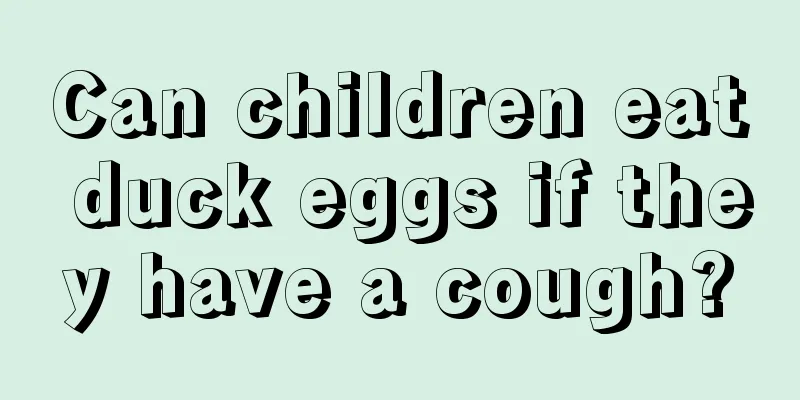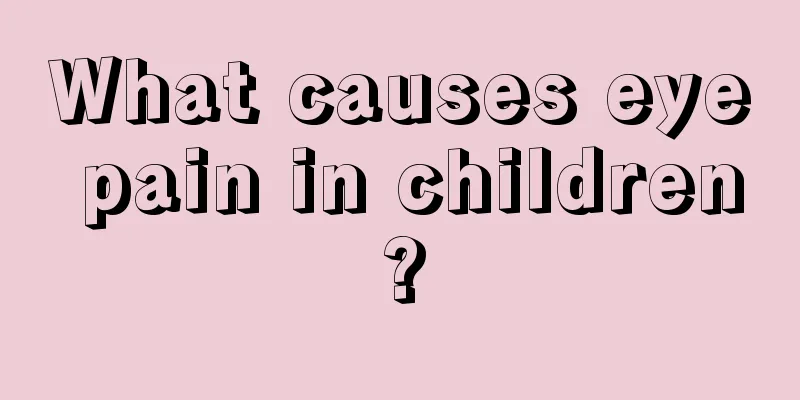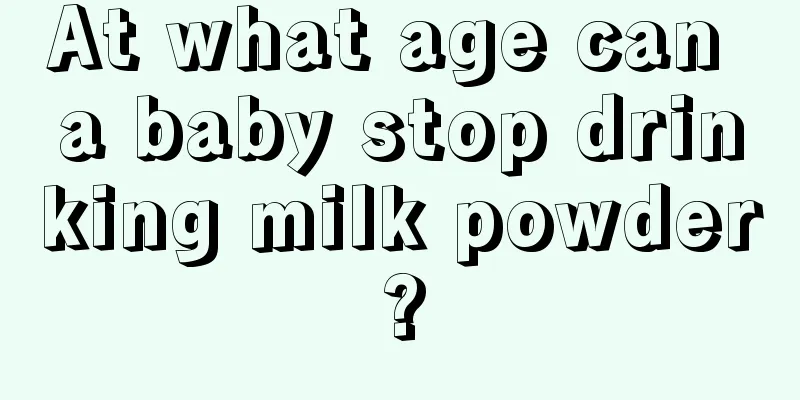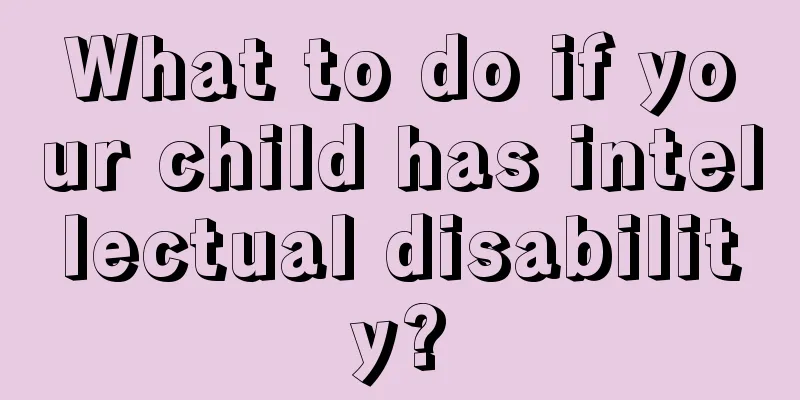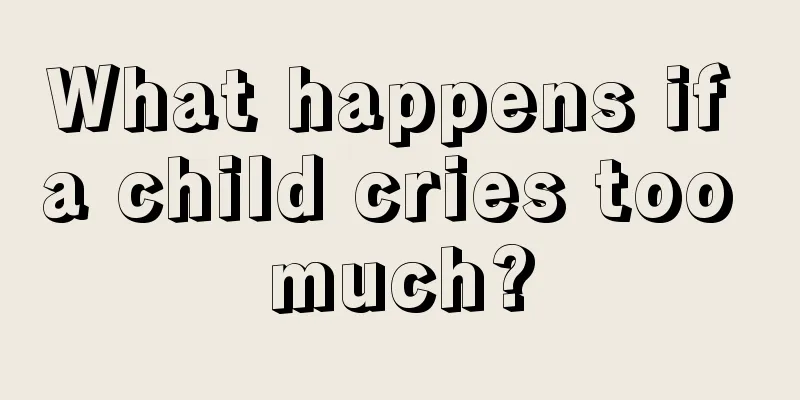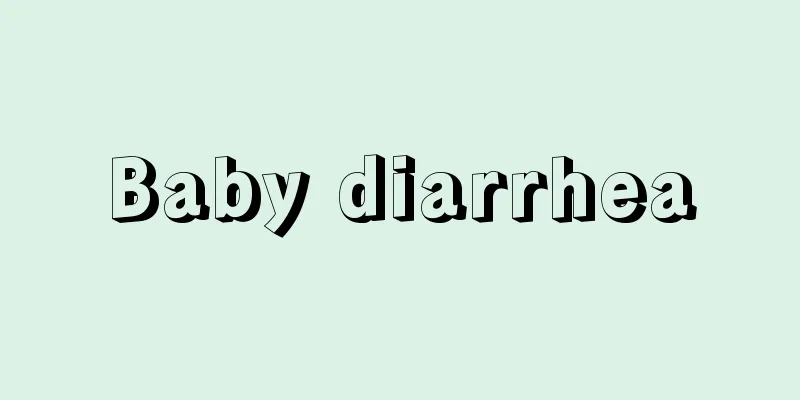What to do if your two-year-old baby drools
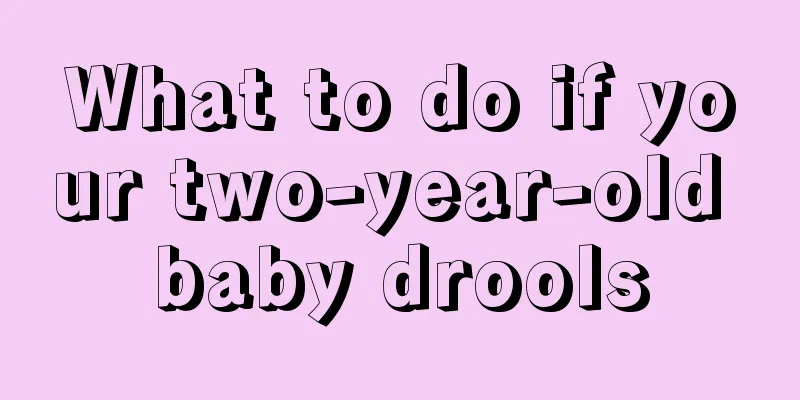
|
It seems that every baby will drool. Some drooling is normal because the baby starts to grow teeth. However, some babies' drooling is abnormal and may cause oral diseases. What should we do if a two-year-old baby drools? Let's find some good solutions below. Drooling is an experience that almost every baby will have. Mothers should never underestimate the importance of saliva. It actually has many functions, such as promoting swallowing and stimulating taste buds; keeping the mouth moist and maintaining the cleanliness of the mouth and teeth; promoting the movement of the lips and tongue and helping speaking. In addition, it has a small antibacterial effect and can form a thin film of sterile cells on the enamel of the teeth, which helps prevent tooth decay. The saliva of a newborn baby is only enough to moisten the oral mucosa. The amount of saliva secretion will increase significantly when the baby is 3 months old. When the baby starts eating complementary foods at 4 months old, the salivary glands are stimulated by these foods and saliva secretion increases significantly. In addition, the baby's mouth is small and shallow, and the swallowing reflex function is not yet perfect, so he cannot use swallowing movements to regulate saliva. Therefore, when the saliva secretion is a little more or the baby is happy or laughing, the secreted saliva will flow out of the mouth. In addition, many babies like to put their fingers, rubber nipples, etc. into their mouths and suck them, which also stimulates the secretion of the salivary glands and increases saliva. Also, when the baby's deciduous teeth erupt, the small teeth push out of the gums and grow outward, causing mild swelling and discomfort in the gum tissue, thereby stimulating the nerves on the gums and causing a reflex increase in the secretion of the salivary glands. Although baby drooling is not a serious problem, it may still affect the baby's health if you are not careful. Because the baby's skin is thin and saliva contains some corrosive digestive enzyme acids, when the saliva flows to the corners of the mouth, face, neck and even the chest skin, it can easily corrode the skin's stratum corneum; or because of moisture, it can cause fungal infection, resulting in symptoms such as skin redness, eczema, and inflammation. When the baby is older, his ability to swallow and close his lips improves, his teeth gradually erupt, and the volume and depth of his oral cavity gradually increase, the drooling situation will improve, and mothers do not need to worry too much. The above is the solution to drooling in a two-year-old baby. If you are not sure why your baby is drooling, you should take your baby to the pediatric department of the hospital for examination. The baby will secrete some saliva, which is also a way for the baby to grow. Finally, I wish your baby can have a healthy body. |
<<: Why are the newborn's hands and feet cold?
>>: What to do if red pimples appear on the back
Recommend
What to do if your child is bitten by fleas
When we were in our hometown, we often thought th...
What causes blue stool in baby?
When some mothers see their baby's stool is b...
Why does my child’s back itch?
Children's skin is very sensitive and easily ...
Is it normal for a 2 year old baby to drool?
It is a normal physiological phenomenon for babie...
What are the children's diet menus?
Spring is here and everything is reviving. This i...
How to deal with bleeding when cutting baby's nails
In fact, in daily life, you should pay special at...
What's a good solution for headaches?
Headaches not only occur in adults, but children ...
Why does my child have bloating and pain on both sides of his abdomen?
With the accelerated pace of life and the improve...
The reason why newborns have yellow eye discharge
The physical health of newborns is an issue that ...
What should I do if my child has rash?
The health of children is very important, and it ...
What to do if your baby has diarrhea after drinking milk powder
Every child is very important to the family, and ...
There are some small bumps on the child's forehead
Children are the treasures of every family. With ...
What should I do if my baby has a red throat and repeated fever for a week?
If the baby has a red throat and repeated fever, ...
Symptoms of tics in children
Tourette syndrome in children is a particularly c...
Tips for treating anal fissure in babies
Young babies are often prone to medical problems,...
